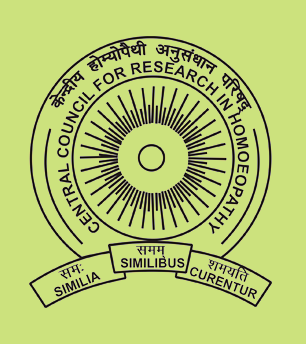Indian Journal of Research in Homoeopathy
Keywords
Parkinsonism, Zincum metallicum, Homoeopathy, Anti-oxidant activity
Article Type
Original Article
Abstract
Background: Parkinson′s Disease (PD) is one of the major neurodegenerative disorders, and oxidative stress has been implicated in playing an important role in the pathogenesis of the disease. Zincum metallicum, produces symptoms mentioned in Homoeopathic Materia Medica which are akin to PD on which basis it might be considered as one at the intermediate to treat the disease. Materials and Methods: Rats were divided into eight groups; surgery was done by stereotaxic apparatus. 6 - hydroxydopamine was used to induce parkinsonism thereafter on 16 th day of lesioning animals were assessed by the video path analyzer. Animals were sacrificed and biochemical assays (Lipid peroxidation [LPO], glutathione [GSH], glutathione peroxide [GPx], glutathione reductase [GR], glutathione-S-transferase [GST]) and level of dopamine (DA), 3,4-dihydroxyphenylacetic acid (DOPAC), and homovanillic acid (HVA), were estimated. Further dopaminergic D 2 receptor binding was also done to confirm the induced parkinsonism. Results: The behavior activities (locomotor, distance travel, stereroevent) were decreased whereas the rest time was increased in lesion group animals as compared to the sham group. The locomotor activity and the distance traveled were protected significantly with 6C whereas rest time was protected significantly with 30C and 200C of Homoeopathic medicine Zincum metallicum. On the other hand, S + 30C and S + 200C groups have shown increased locomotor activities as compared to S group. The rest time was also increased significantly in S + 6C and S + 30C group animals as compared to S group. The elevated level of LPO and DA D 2 receptor binding density in PD group was protected significantly with Zincum metallicum (6C, 30C, and 200C). The depleted level of GSH and activity of antioxidant enzymes (GPx, GR, and GST) and DA and its metabolites DOPAC and HVA were protected significantly with Zincum metallicum (6C, 30C, and 200C). Conclusion: The study indicates the Zincum metallicum may be helpful in slowing down injury in parkinsonism and could be a beneficial drug for the prevention of PD.
Digital Object Identifier
10.4103/0974-7168.159528
Publisher
Wolters Kluwer India Pvt. Ltd.
How to cite this article
Khan A, Khuwaja G, Islam F, et al. Protective effect of Zincum metallicum on rat model of Parkinson′s disease. Indian J Res Homoeopathy 2015;9:86-95. doi: 10.4103/0974-7168.159528



